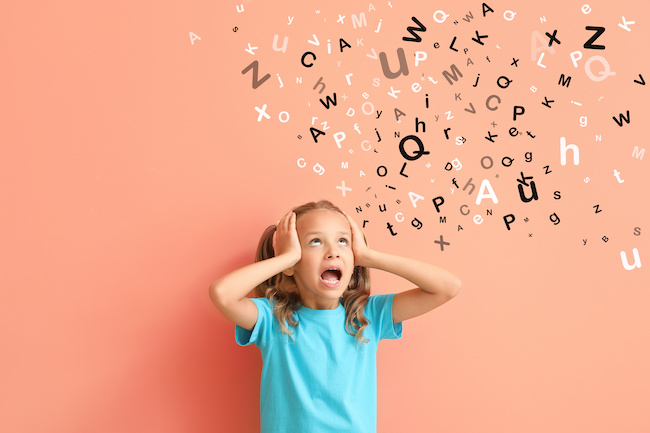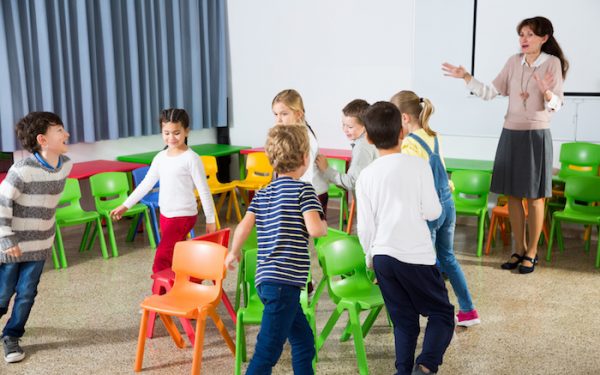“Word Chain” is a dynamic and engaging word game that encourages creativity, quick thinking, and vocabulary expansion. Perfect for players of all ages, this game can be played anywhere, from classrooms to family gatherings, making it a versatile choice for educators, parents, and anyone looking to spice up a social event.
Game sheet
- Number of players: from 6 children.
- Ages: Suitable for children from 7 years and older.
- Supplies: No special materials required. Just a group of participants ready to challenge their linguistic skills.
- Setting: indoors
- Play time: Approximately 15 minutes
Word Chain Game Rules
- Gather Participants: Players sit in a circle or stand in a line where everyone can hear each other.
- Starting the Game: The first player says any word out loud.
- Forming the Chain: The next player must say a word that begins with the last letter of the previous word. For example, if the first word is “dog,” the next word could be “goat,” and so on.
- No Repeats: Words cannot be repeated within the same round. If a word has already been used, the player must think of another.
- Quick Thinking: Set a time limit for each player to come up with a word (e.g., 5-10 seconds) to keep the game moving and add a level of challenge.
- Elimination: If a player cannot think of a word within the time limit or repeats a word, they are out for the remainder of the round. The game continues until one player remains.
Variations of the game
- Themed Rounds: Choose specific themes for each round, such as animals, countries, or foods, to narrow the focus and challenge players’ knowledge in particular areas.
- Alphabetical Order: Players must come up with a word that starts with the subsequent letter of the alphabet from the previous word.
- Sentence Building: Instead of single words, players build a coherent sentence where each new word starts with the last letter of the previous word.
- Team Play: Divide players into teams, where each team collaborates on words, competing against other teams to last the longest.
- Reverse Chain: Make the game more challenging by requiring the next word to start with the first letter of the previous word.
“Word Chain” is not only a fun and competitive game but also an excellent tool for enhancing verbal fluency, linguistic creativity, and cognitive speed. Its simplicity and adaptability to different settings and groups make it an ideal choice for educational purposes, ice-breakers, or just as a quick and entertaining game among friends or family.
Educational Benefits of Word Chain Game
- Vocabulary Expansion: Playing “Word Chain” encourages players to dig into their vocabulary banks to come up with words, helping them learn new words and reinforce existing knowledge.
- Spelling Practice: As players think of words to fit the game’s criteria, they mentally spell them, which serves as good practice for accurate spelling.
- Cognitive Speed: The time limit for responding in “Word Chain” challenges players to think quickly, enhancing cognitive processing speed and agility.
- Linguistic Creativity: The game pushes players to be creative with their word choices, especially in themed or restricted rounds, fostering linguistic creativity.
- Listening Skills: Players must attentively listen to the word given by the previous player to ensure their response is correct, thus improving active listening skills.
- Concentration and Focus: “Word Chain” requires players to stay focused on the chain of words being created, enhancing their concentration and ability to stay engaged in a task.
- Social Interaction: This game promotes social interaction and communication among players, essential skills in both educational and casual settings.
- Teamwork and Cooperation: In team variations, players work together to come up with words, fostering a sense of teamwork and cooperative problem-solving.
- Learning under Pressure: The game’s time constraint puts players under mild pressure, helping them learn to think and react under stress—a valuable skill in academic and real-world scenarios.
- Cultural and Knowledge Awareness: When playing with themes, players are encouraged to think about words related to different subjects, cultures, or languages, broadening their general knowledge and cultural awareness.
Explore our array of engaging games and effortlessly host the most memorable party for your kids with our printable game kits!






